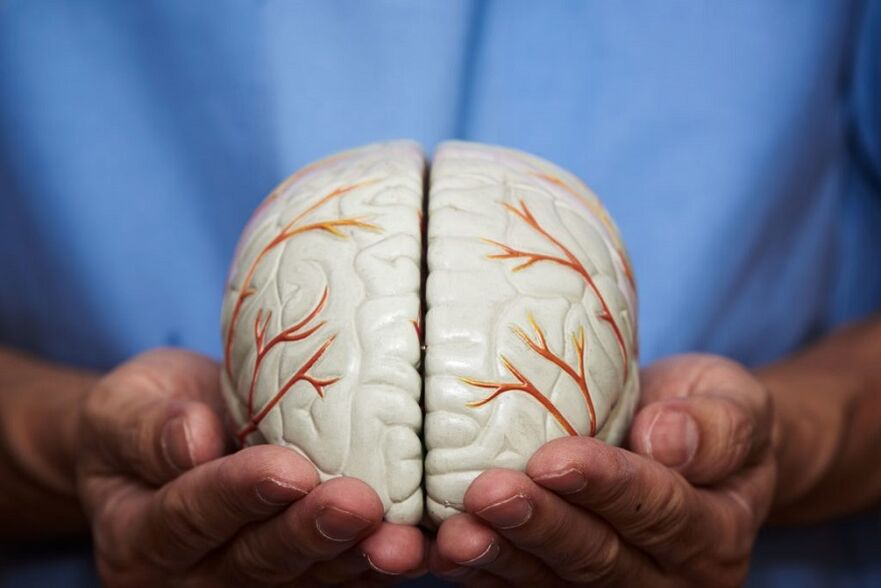
Everyone knows that quitting drinking and quitting is very difficult, and for many people, almost impossible. Drinking is clutched in his tenacious hands. Overcoming a psychological addiction that is controlled by your own brain is a difficult task, because the brain does not obey you in most cases, your body obeys the brain. The body wants to drink water, and you will look for water. The body wants to eat, it gives a signal to the brain and it, controlling you, looks for food. And the brain wants to drink some amount of alcohol, and you really want to drink. So why is there in our bodies the desire, and in fact, in our brains, to drink an alcoholic drink?
Why does the brain want to drink alcohol?
Here we have to look for when the link between the brain and drinking started to form. One can note that the onset of human consumption of alcohol is mainly associated with auspicious and bright events - holidays, weddings, birthdays and corporate parties. And remember all these holidays you remember, which means your brain only remembers joy, fun, good mood. If it went badly from drinking too much, it happened the next day and there is always an excuse for this - they say, drunkenness, it doesn't happen to anyone, but it's fun.
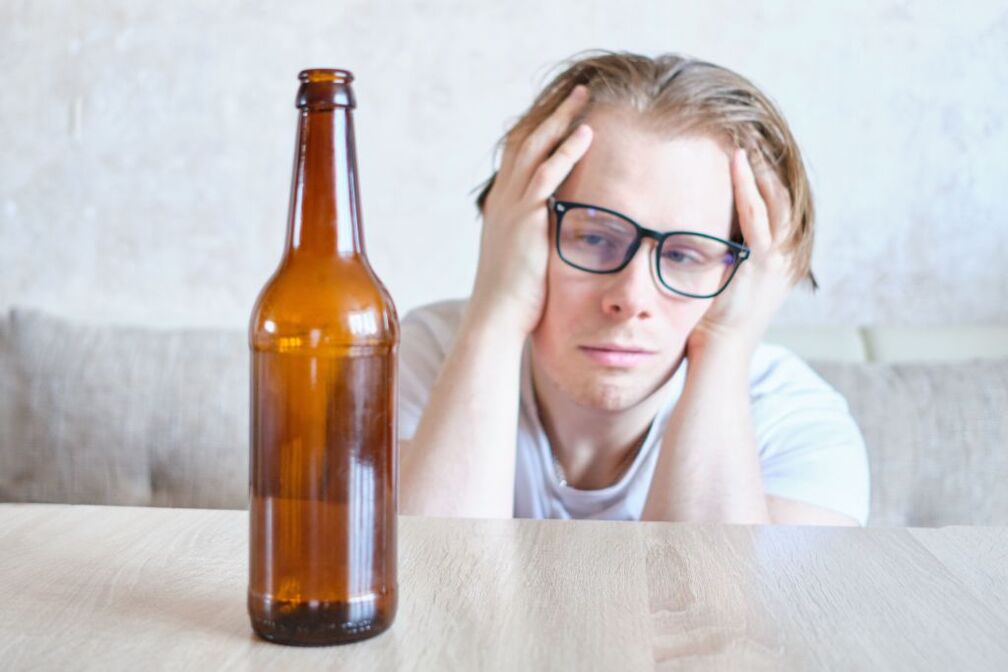
In addition, many people find that after a tiring day at work, drinking a glass, another type of wine or even a light drink such as beer, immediately followed by less stress, a good mood comes, tiredfatigue decreases. Experts explain this because alcohol really belongs to the group of addictive substances, and the World Health Organization equated alcohol with drugs in 1975. Entering our brains, and in fact notthere is no barrier to get into our body, it affects the dopamine neurons, they are stimulating and start producing dopamine which is, in fact, the production of happiness and joy hormones. The brain senses the beginning of this phase and begins to associate it with drinking, which in fact leads to the formation of a strong and stable positive psychological association between drinkingand brain. Then, to achieve the same "pleasure", you need to drink more, even more and more often, as the sensitivity of the dopamine receptors becomes more and more dim. And, in fact, it is easy for a person to enter the second stage of alcoholism, when there is not only a psychological connection, but also a physiological dependence on drinking, which requires treatment for alcoholism. right away.
How to quit drinking?
Therefore, those who understand their "future", where their lives are directed towards regular drinking, and who want to break free from this growing dependence, really have to fight the ministry itself. brain, where a stable psychological connection begins and the need to drink alcohol to get some quick "joyful" bright moments in life after drinking.
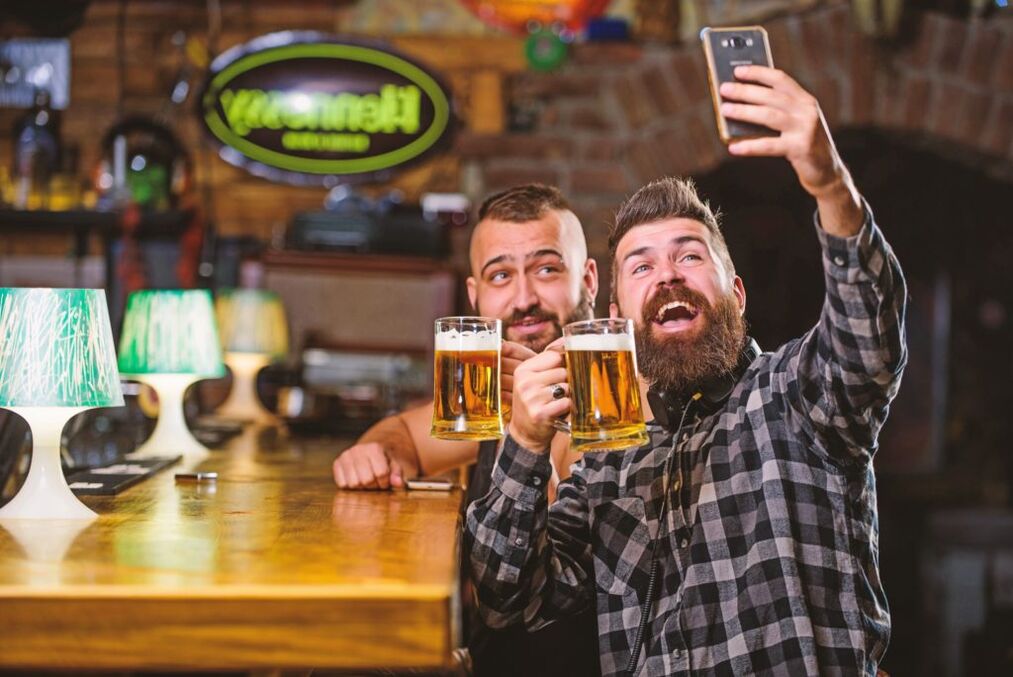
Step 1 - It must be acknowledged that the brain is in fact our worst enemy!
All the problems we face in the beginning arise in the depths of it (fear, anxiety, reluctance), this is the brain's job. It creates obstacles for us, creates problems, forms habits and prevents us from dealing with them.
Drinking alcohol, we will receive a large amount of dopamine released by the brain when exposed to alcohol, a neurotransmitter responsible for pleasure, excitement, pleasure in the brain. This number is so large that it eclipses even the happiest moments of our lives. This "undiscovered" joy and pleasure is precisely due to the effects of alcohol on the brain. So, after getting "cheap" pleasure through alcohol and having an attachment to it, he's trying to get it - like "I want more of that, I want a lot of quick fun. "Thus, I want to quickly relieve stress from life" in the simplest way, by drinking alcohol, without trying to solve the difficult tasks that pile up, and then enjoy their solution.
Step 2 - desire is the root cause of all beginnings!
Only desire can completely rebuild your brain, and form the correct order in it. Just wishing for the "harder" pleasure, the "harder" pleasure, earned after exerting a lot of effort, not just - I drink and "I feel good, and I don't care about anything"What. "Only the brain's desire to receive true "earned" pleasure interrupts the brain's desire to receive "light" pleasure quickly, in the here and now. Because, as soon as you decide to give up alcohol, you have declared war on your brain, and at the same time in your head form the command for other "work" desires and go in the direction of sobriety.
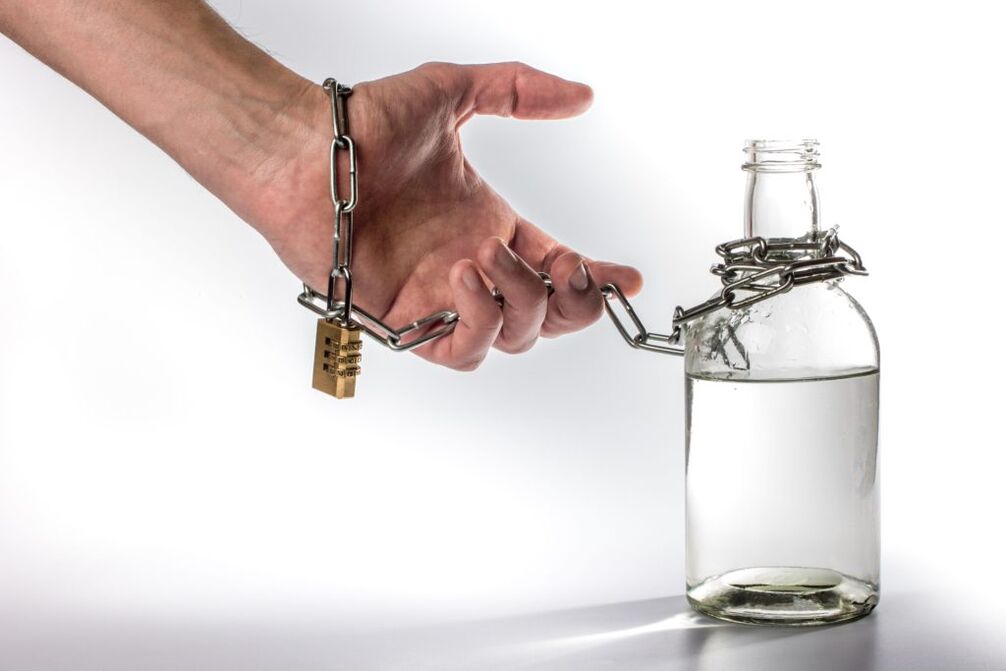
Step 3 - Easy Exit! Not starting over is hard!
Don't start over. . . It is sometimes disastrously difficult! That's why - giving up an addiction is always a battle. The brain arouses a strong desire to accept something and remove all barriers to this. Your willpower is the only obstacle to drinking.
Ethanol (alcohol) is a powerful stimulant of pleasure and euphoria in the brain. If you quit drinking, chances are you'll start thinking about how good it would be to drink beer, vodka, or spirits now. Remembering alcohol as a pleasant event, but otherwise the brain won't remember the alcohol, which gives him a series of feelings of joy and euphoria, and all of this in an instant, you won't be able to remember. resist the urge to drink again. Here, you need to be able to think of alcohol as a bad event, or codified. Coding the alcohol will help relive this moment of lust and give time to take a negative chance from drinking.
4 steps - won't last long!
Therefore, this wish must be evaluated. . . Rate on a 10-point scale. How strong is aspiration (like a hurricane or like a storm). Rarely realizing the desired level, the scale reaches a strong 10 point thirst. Therefore, based on the results of the perception, it is necessary to switch from one type of non-strong desire to another type of activity.
Start accepting simple natural human joys from life, from work, from family, from hobbies, from communicating with others. Never drink alcohol, or you will have to start all over again.
The more varied your new entertainment, the faster the brain will adapt to low-normal levels of dopamine, and as we remember, alcohol artificially and multi-fold increases dopamine levels in the body.
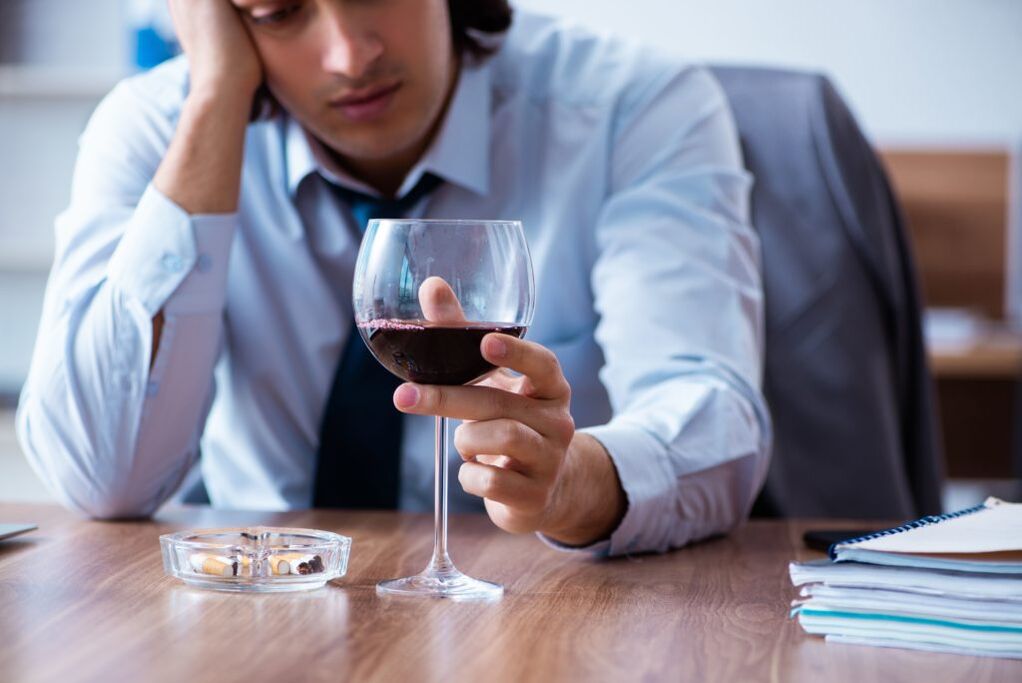
Step 5 - Just Throw Wine!
We don't recommend giving up and quitting smoking at the same time, or giving up your favorite foods. If this is done at the same time, the risk of collapse is increased many times over, because giving up everything puts a lot more stress on the brain than when giving up certain habits or addictions. flooded. At first, you can keep the rest of your bad habits.
Therefore, if you have decided to quit drinking, then stop drinking. If it's more important to you to quit smoking, then just quit. By throwing everything away at once, you won't be able to resist the temptation to double or triple. And if you have a breakdown, such as smoking, you will most likely quit drinking.
Step 6 - Don't Get Lost!
During the first week, the most difficult moments arise when giving up alcohol. Fear, anxiety, increased desire. Here, whatever one may say, it is very difficult to cope without medication. If you understand that it will only get worse, it is better to seek medical assistance from your doctor. There are drugs that actually reduce the urge to drink, relieve stress and eliminate unpleasant feelings.
In such cases, we strongly recommend that you contact the doctors at the drug treatment center. They will help you choose the right life cycle regimen to quit drinking. Provide optimally selected drugs and vitamins and minerals needed by the body. Take control of your health with the latest medical devices.
Ultimately, the most important thing is to not have loose stools and start drinking again.
Step 7 - you need support!

For support, there is always the opportunity to contact the Alcoholics Anonymous group. If we remove all conventions and ill-will, it becomes clear that everyone can help each other. Without support, we are practically helpless even in everyday life. If you do not wish to join the Alcoholics Anonymous group, you have the opportunity to contact a psychological support service.
Step 8 - burn adrenaline!
Due to the marked increase in the amount of adrenaline in the blood due to the refusal of alcohol, it must be burned. Burning adrenaline without affecting others is only possible through physical activity. Like everything in our lives, you need to start gradually. It would be better to have the opportunity to work out in the gym. Otherwise, an outdoor walk or a small jog should suffice.

If you quit drinking, walk more, see friends, and get some active rest.
By providing yourself with sports activities, you not only help burn adrenaline, but also strengthen muscles, nervous system, health and provide the brain with new physical and tactile sensations, forcingit is not distracted by thoughts of alcohol. Such additional "work" for the brain has a beneficial effect on movement along the path of wakefulness and an active awake life.

Walk and travel more with a complete refusal of alcoholic beverages.
Hiking, traveling, where the brain has nowhere to hide its thoughts about alcohol. Erase and rewrite old memories of pleasant glasses of wine with new impressions.
Step 9 - you will succeed! Do not doubt!
It is important to tolerate: sleep, nutrition, trying to have a positive mood and mood. Furthermore, this applies to everyone, as we all depend on something. That is why the treatment regimen is so important to achieve positive results. only the regime can forge us to fight (with ourselves first)

Step 10 - try to be happy!
Sobering up after drinking is boring enough. The world around us is no longer content with colors and events, because they have no power to interrupt the euphoric state of intoxication. This boredom is also a product of our brains. Therefore, you need to constantly search for yourself: a new hobby, interest, desire. Happiness is a product of our brains (as well as fear). The brain can be customized and up to you.
Common questions about alcohol and answers to them
Every time I quit drinking and I can't control myself - I start over, what do I do?
It is very difficult to quit drinking. The neural connections made in the brain between the positive idea of drinking and getting pleasure, euphoria and euphoria from it cannot be destroyed without a fight. Alcohol belongs to the group of addictive substances and without effort, perseverance and will, it will not have the effect of eliminating its effects from the body.
If you don't have the willpower to resist alcohol, then you should think of coding as an opportunity to quit drinking.
If you have the perseverance and strength to fight alcoholism, then:
- Do not give up.
- Try to fool your brain, because it is the main leader of your body. Treat alcohol as a poison, remember only bad experiences when drinking. Imagine it as an extremely dangerous substance and drink it in disgust, having strong alcohol in your mouth especially feels annoying. Do everything on purpose to make you feel uncomfortable while drinking.
- Start drinking alcohol in very small doses. Just sip a little bit. Be firm about this.
- For any alcohol recommendations, turn your desires into the non-alcoholic beverages you enjoy most and drink for fun instead of alcohol.
Try with all your knowledge and tricks to fight alcoholism. Remember that alcohol controls your brain.
Can alcohol coding be part of alcohol addiction treatment?
Coding is often incorporated into treatment to help patients live in coding times without alcohol. During this time, you can often improve your health, not be ravaged by alcohol, restore family and work relationships, if they have been compromised by alcoholism, and recover physicallymentally and physically.
Can a person drink alcohol and not be addicted to alcohol?
Sure it can. There are many people like that. They are well aware of the dangers of drinking in large quantities and do not allow themselves to get "trash" drunk, fall asleep at work, argue with their wives, destroy their health and get themselves into a series of troubles. is different. Even the strongest anti-alcoholic, if he drinks a lot of alcohol almost every day, he will quickly develop the habit of drinking alcohol. And if we consider alcohol to be in the category of drugs, approved by the World Health Organization in 1975, alcoholism is likely to cover most people who drink heavily and regularly. Therefore, alcohol should only be consumed in limited amounts so as not to lead to addiction.


























